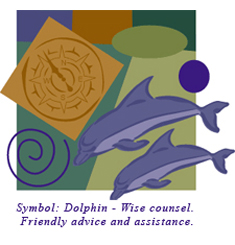More and more of the work of The Wunderlin Company can be defined as “coaching” work – helping individuals improve their own performance and helping managers within organizations  develop the skills needed to coach their own employees. Our goal is to help transform individuals so that they can be more effective in their jobs. As Robert Hargrove so eloquently says in Masterful Coaching:
develop the skills needed to coach their own employees. Our goal is to help transform individuals so that they can be more effective in their jobs. As Robert Hargrove so eloquently says in Masterful Coaching:
“A successful coaching relationship is always a story of transformation, not just of higher levels of performance. It’s a story that takes people beyond their immediate passion and pride and helps them come to grips with the fact that to reach what is really possible and achievable for them, they must be willing to fundamentally question who they are, what they do, and why they do it.”
The coaching model that we use with our clients is based on three foundational concepts: diagnose, plan and coach. Click here for a description of how these concepts help our clients work on specific goals and issues that affect their performance.
In a recent Harvard Business Review Article entitled, The Executive as a Coach, authors James Waldroop and Timothy Butler some very practical advice as you engage in coaching sessions.Practice active listening. Play back to the person what you heard her say. You should paraphrase in your own words so that the person knows you truly understand what she said – or so that you can clarify any misunderstanding if you didn’t.
Support learning through action and reflection. One role of the coach is to make the coachee realize how his behaviors affect his ability to succeed. The best way to accomplish that is to ask him to imagine how others might be reacting to his behavior. After a specific event, ask questions like: What happened? What did you do? How successful do you think the action was? How did you feel before, during and after? How did other people react?
Move from easy to hard. Do not expect behavioral goals to be reached without some trial and error along the way. If you are working on several behaviors with an individual, pick one that is most likely to change quickly and with the least amount of trauma. Let them experience some success before moving on to harder goals.
Set microgoals. Set goals that approximate the ultimate goal and form the basis for reflection and discussion between you and the coachee. For example, if the ultimate goal is to stop overly controlling behavior, a microgoal might be to hold back your opinion in a meeting until every else has spoken or to delegate an important piece of work.
Practice script writing and role-playing. A coach can help the coachee who has problems communicating by encouraging him to write scripts and then to role play possible scenarios.
Encourage more positive feedback. When coaching, don’t just dwell on the negative. Remember to celebrate your coachee’s successes.


Leave a Reply